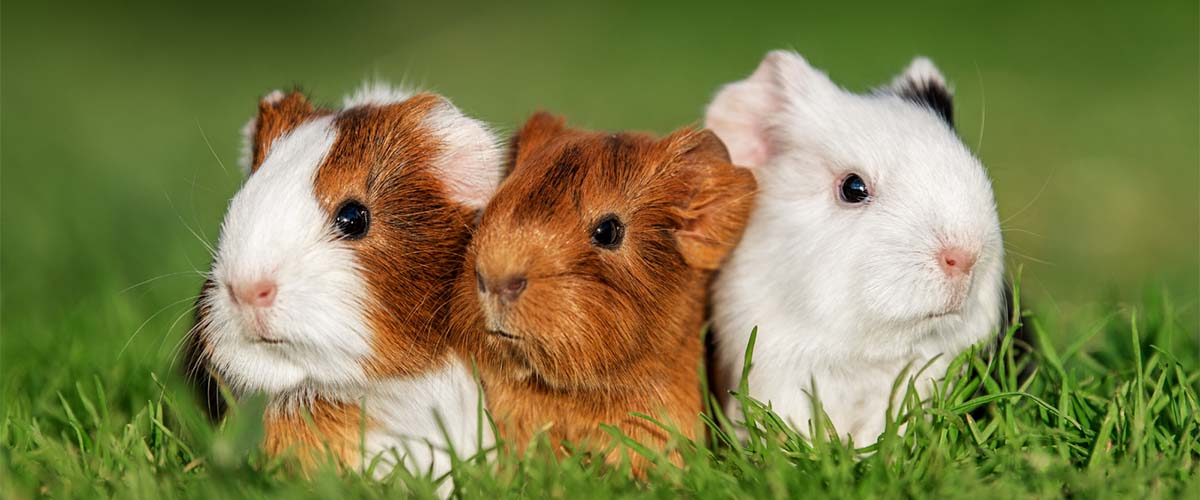Choosing the perfect small pet
A guide to rabbits, guinea pigs, rats, mice, hamsters, gerbils, degus, ferrets, and chinchillas
Overview
- Small pets like rabbits, guinea pigs, rats, mice, and hamsters can be wonderful additions to your home, but they're also a significant commitment. It's crucial to do your research before bringing any of these pets home.
- Careful consideration is essential to choose the best pet for you and your family. Ensure you can provide everything they need to thrive. If you can meet their requirements, and they can fulfill your needs, you're likely to be a perfect match.
- Our vets have compiled this helpful guide to assist you in finding the ideal pet for your household.
Five important considerations before getting a new pet
- Who will be your pet's main carer? In the UK, you must be over 16 to legally own a pet. Therefore, it's essential that an adult is ultimately responsible for your pet's care. Children can learn a lot from pets but should never be their primary carer and should always be supervised around them.
- Will your pet need a companion? Most small pets (with some exceptions) require companionship from their own species and need to live in pairs or groups.
- How much space do you have? Most small pets need a much larger living space than you might think, and many enclosures sold in pet shops aren't nearly big enough. Your pets need to be able to behave as they would in the wild, such as playing, climbing, burrowing, tunnelling, exploring, and foraging. The bigger the space, the better. Nowadays, many people choose to build their own enclosures to provide their pets with enough space.
- How much do you want to handle your pet? Some species love being handled, such as rats and ferrets. Others prefer to be stroked on the ground, like guinea pigs and rabbits. Some just prefer to be left to their own mischievous devices and take the occasional treat from your hand, such as mice, hamsters, chinchillas, and gerbils.
- How long will your pets live? Lifespan varies among small pets. Some live for one to two years, while others can live for up to 15. It's important to consider how long you can commit to caring for a pet.
Where to get a small pet
A pet that’s had a good start in life is much more likely to be healthy and happy in the future.
Well known rehoming centres: Ideally, we recommend rehoming from a well-known reputable rehoming centre such as Blue Cross, RSPCA, or Woodgreen. These charities ensure that all animals in their care have been properly health-checked, and their staff are specially trained to help match you with your perfect pet.
Other rescue centres and breeders. We recognise that many other rescue establishments and breeders also meet high standards. Our vets have put together a checklist for rehoming/buying small pets from elsewhere:
- All animals should be living in a clean environment.
- All animals should have a suitable living space, appropriate bedding, sleeping areas, and (depending on species) items such as dust baths.
- All animals should look bright and alert when awake.
- All pets should look healthy – they should not have any discharge around their eyes, nose, ears or bottom.
- All pets should have been gently handled from a young age (or as young as possible) to get them used to people. However, some pets may never be comfortable being handled and the rehoming organisation should let you know if this is the case.

